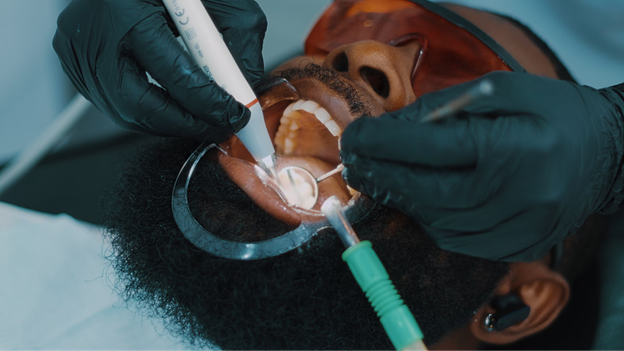
Written by Holly Dodds on 29th September, 2025

Dispelling Common Myths About Oral Cancer
Oral cancer may not be among the most common types, but it’s still widely misunderstood. Misconceptions about who it affects and what the warning signs look like can lead to delayed diagnosis and treatment, and when it comes to cancer, early action really does make all the difference.
Although many people have heard of oral cancer, awareness of the symptoms and risk factors is still surprisingly low. So, let’s clear up some common myths and shine a light on the signs to look out for.
Before we get into the most common myths around this type of cancer, let's go over what it is and where it can affect.
Oral cancer is a broad term for cancer that affects the inside of your mouth - including the lips, the front and back of the tongue, the roof and floor of the mouth, the tonsils, inside of your cheeks, and the throat.
According to the Oral Health Foundation, more than 8,800 people in the UK were diagnosed with mouth cancer in 2022.
Oral cancer can present as a painful sore, but not always. It can also be painless, especially in the earlier stages. It may feel firm and painless, slowly growing in size. Always get persistent mouth changes checked, even if they’re painless.
False! Dentists are trained to spot early signs of oral cancer, they routinely check for things like ulcers, red or white patches, lumps, and swelling. This is why regular dental check-ups (at least once a year) are so important, even if you think everything feels fine.
Oral cancer usually affects people above the age of 66, but this doesn’t mean it’s impossible for younger people to get it - especially if risk factors like smoking or HPV (Human papillomavirus infection) are involved.
Whilst mouth ulcers are common, they should clear up on their own by week one or two. If you have a sore that lasts longer than three weeks, or if it's accompanied by other symptoms such as being unusually large, bleeding, or becomes more painful and red, it's definitely worth getting it checked out by a dentist.
People who have never smoked in their lives can still get oral cancer. Although certain lifestyle factors such as smoking and drinking can increase your chances of developing it.
In the UK, about 17% of mouth cancer cases are linked to smoking.
Mouth cancer can often develop quietly, especially if you're not familiar with what to look for. That’s why it’s so important to visit your dentist if you notice anything unusual, even if it seems minor, and to keep up with regular checks.
➔ Sores and ulcers that aren’t healing
➔ Trouble chewing, swallowing, or moving the jaw or tongue
➔ A lump, swelling, or unusual growth inside the mouth
➔ Red or white patches on the tongue, gums, or inside the cheeks
➔ Loosening of teeth without a clear reason
➔ Unexplained earache or discomfort
➔ Changes to your voice or hoarseness that sticks around
➔ Noticeably bad breath that doesn’t improve
➔ Unintentional weight loss
(Notice any of these? Book a dental or GP appointment straight away.)
➔ Avoid smoking or using any tobacco products
➔ Cut back on alcohol, especially in excess
➔ Eat a balanced diet rich in fruit and veg
➔ Practice good sun safety, especially on your lips
➔ See your dentist regularly for check-ups
➔ Consider getting the HPV vaccine and taking steps to reduce exposure
Whether you’re living with cancer, awaiting results, or supporting someone who’s been diagnosed, Cancer Card is here to ensure no one faces cancer by themselves.
Find tailored support: Search our Support Directory for charities, counselling, financial advice and more.
Talk to us: Call our Support Helpline on 0345 222 0333.
Comfort boxes: Gift one of our carefully hand‑packed boxes to show a loved one you’re right there with them.
